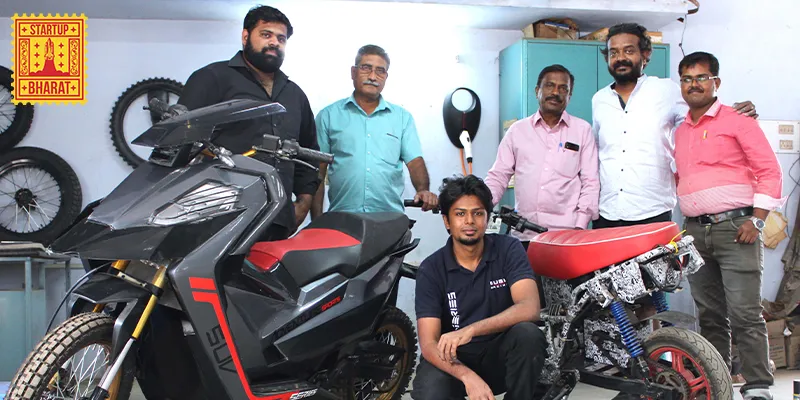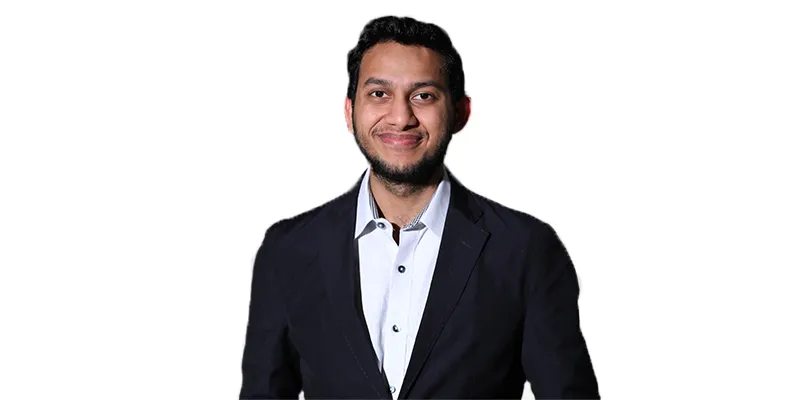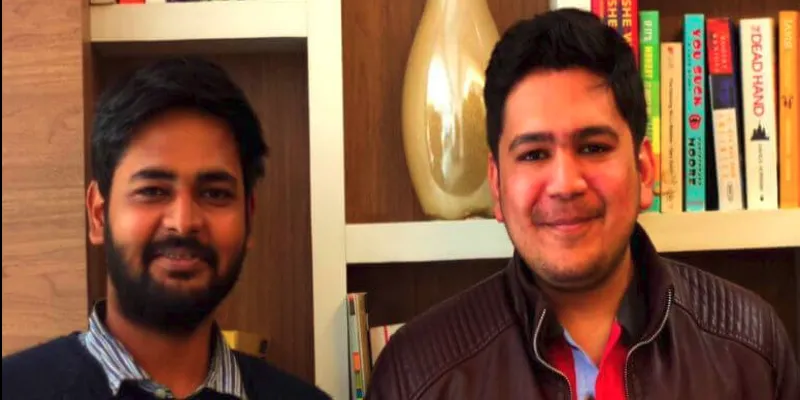WATCH: The week that was - from India’s first polo startup to OYO’s foray into the coworking space
This week, we bring to you the story of India's first polo startup, Karix's Gurteshwar Singh, and an EV startup from Coimbatore. Hospitality unicorn OYO made headlines this week with its foray into the coworking space.
Often called the “sport of kings”, polo is one of the world’s oldest team sports. Its origins can be traced to Persia (Iran) between 6th Century BC and the 1st Century AD, but few may know that the modern version of the game has its roots in India.
Now, nearly 160 years later, three Indians–a former Indian Army colonel and two MBAs from Symbiosis–are looking to revive and promote the sport through what they say is “India’s first polo startup”, the Royal India Polo Club (RIPC).
Launched in January 2019 by Colonel Tarun Sirohi, Vikrant Singh Mathur, and Krishan Ramawat, Gurugram-based RIPC is an invite-only members club.
Watch our video where we go into what made headlines the past week:
This week, on Techie Tuesday, we spoke to a college dropout who went on to become a cloud telephony expert. Meet Gurteshwar Singh, Director, New Product Development at mobile enterprise engagement platform Karix. If anything, Gurteshwar’s story is a testament to the fact that there is no single, obvious route to success. And, most importantly, that you don’t need a fancy degree to land your dream job; just an unwavering passion and fascination for the field of your specialisation, which in Gurteshwar’s case was technology.

Gurteshwar Singh
For a long time, electric vehicles were synonymous with Tesla. Elon Musk's automotive and energy company has been an inspiration to many aspiring young entrepreneurs, including 23-year-old Guhan RP. In 2017, the mechanical engineer set up Coimbatore-based EV tech startup Gugu Energy, which aims to accelerate India’s shift to sustainable energy.

The Gugu Energy team designs and manufactures smart EVs, specifically two-wheelers, which are affordable for the Indian masses.
There is no stopping OYO’s Ritesh Agarwal, who now wants to have a piece of the coworking space too. Recently, OYO Hotels and Homes acquired Delhi-NCR-based Innov8 for Rs 220 crore, marking its entry in the coworking space.
With this move, the SoftBank-backed hospitality chain, which currently operates in hotels, homes, and co-living, is now looking keenly at the coworking segment.

Ritesh Agarwal, Founder and CEO of OYO Hotels and Homes.
Trading through algorithms is a rage in the US, and it is just about moving up in India. Why is algo, or algorithmic, trading so important? This form of trading uses a computer program that follows a defined set of instructions (an algorithm) to place a trade. The advantage is that it generates profits at a greater speed than a human trader.
Started in 2017, Kuants offers an Algorithm Lab on which stock traders, investors, and enthusiasts can create, and test different trading algorithms without the need for coding.

Finally, let us show how travel booking company MakeMyTrip is showering love on India’s rich history. MakeMyTrip has partnered with ASI for online bookings for 116 historical monuments. It will offer an online booking gateway to world heritage and well-known monuments under the protection of ASI, including the Taj Mahal, Red Fort, Qutub Minar, Humayun's Tomb, Khajuraho Temple, Charminar, Golconda Fort, among others.
The partnership is a collaborative effort between the tourism stakeholders to effectively promote India's rich heritage tourism.

Deep Kalra - Founder, MakeMyTrip
Watch other video interviews, stories our viewers loved this week:
This Silicon Valley edtech startup is working with Oxford University Press to make language learning easy
For someone who has spent more than 20 years in the learning space, building and managing learning solutions for organisations, starting up with a language learning portal seems like an obvious choice. But Deepak Desai, the Founder and CEO of edtech platform Ardor Learning, had more than one reason to embrace the entrepreneur’s life.
First, his vast experience in the education industry and the superior technological resources at his disposal made an online platform facilitating language learning a natural progression. Secondly, as Deepak explains, it was his way of “giving back to India”.
1562965182844.png?fm=png&auto=format)
Deepak Desai, Founder and CEO, Ardor Learning, in conversation with YourStory.
BlackBuck’s Deepak Warrier says data helps you understand how to increase revenues and address gaps
Nine-months-ago, Rajesh Yabaji, Co-founder and CEO of BlackBuck, met Deepak Warrier, former data scientist from American Airlines and Myntra, to create meaning out of the data he had gathered from fleet operators and truckers in India.
Rajesh co-founded BlackBuck in 2015 along with Ramasubramaniam B and Chanakya Hridaya. It is a marketplace for shippers, truckers, and fleet owners to discover cargo to be transported and match the pricing on given routes.
And in just four years, BlackBuck has gathered data of 300,000 truckers and 60,000 fleet owners. The startup has also raised a total of $285 million from Accel Partners, Goldman Sachs, Sequoia Capital and a clutch of other investors.

Deepak Warrier
This Hyderabad startup is looking beyond mainstream education to target those on ‘top of the pyramid’
Qualities and characteristics like leadership, problem-solving attitude, innovation, communication skills, teamwork, thinking and creativity, and planning and organisation also matter. And, oddly enough, these attributes cannot be nurtured through textbooks alone.
It requires real-life problems and exposure to real challenges to harness such qualities right from the grassroots level. And encouraging students with such experiential learning is Worldview Education, a person-centric experiential learning platform for students.
1563282267661.png?fm=png&auto=format)
Sampreeth Reddy, Founder, Worldview Education
Marico Innovation Foundation recognises startups with disruptive ideas that can change the face of India
Each year, Marico Innovation Foundation (MIF) picks 10 to 12 companies to mentor under its scale-up programme, where startups learn about strategy and marketing.
It also has an agriculture and agritech (Innovate2Cultivate) cohort of nine startups. Its head, Priya Kapadia, talks about what has been the impact of MIF.

Priya Kapadia, Head, Marico Innovation Foundation
Why Veri5Digital chose Aadhaar to build its technology, and how it cracked the identity conundrum in India
Veri5Digital was started by Saru Tumuluri in 2016, as an entrepreneur in residence (EIR) at Khosla Labs, in an attempt to build identity technology around Aadhaar’s digital signatures, KYC, and video KYCs. The company solves issues around KYC and identity using deep tech like artificial intelligence.

Saru Tumuluri
In a conversation with YourStory, Saru talks about how the company continued to grow even after the Supreme Court verdict last September that stopped Aadhaar from becoming the primary form of identification for Indians.
(Edited by Saheli Sen Gupta)








